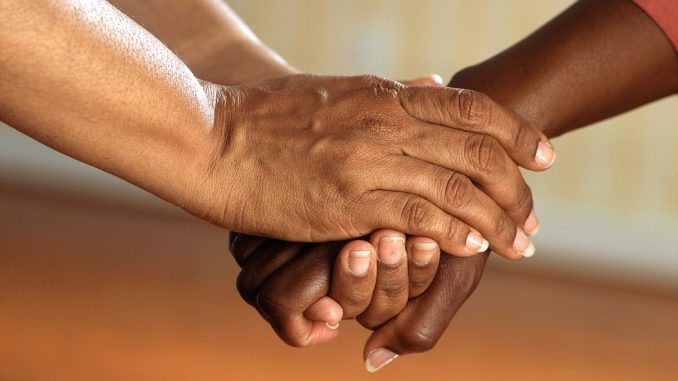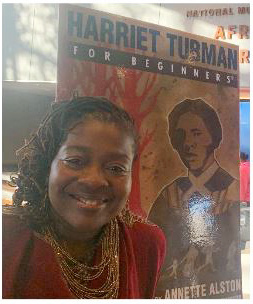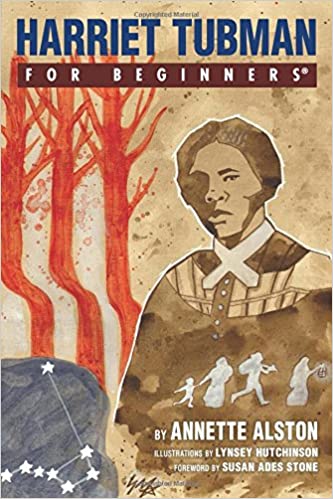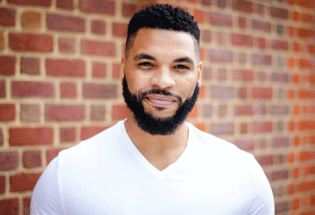
By Annette M. Alston
My mother prays every day that my father who has been in and out of the hospital over the past few years, won’t have to suddenly go into the hospital during this COVID-19 pandemic. We know that when and if he does, he will likely die because my mother, who has always been my father’s first responder, won’t be able to be with him when he goes in. My mother has saved my father’s life on more than one occasion. Once, when my father was told that he could go home from the hospital while he was still bleeding from the rectum. “It’s probably diverticulitis acting up. He can go home.” My father was ready, but Mom told the doctor he wasn’t leaving until he could tell her why he was bleeding and the bleeding had stopped. “I have no way of giving you a transfusion at home if you need it,” she told my father.
Another time was when he was overdosed in a rehab facility. Fortunately, Mom decided to drop by the nursing home before attending another errand. My father was despondent when she arrived and my mother realized what had happened before the nurse did and demanded that they call the ambulance immediately. He was slipping away. COVID-19 is shining light on a health care system that has always lacked adequate oversight. The New Jersey Department of Health just released its first wave of self-reported COVID-19 totals. There are more than 18,000 cases throughout the state’s long-term care facilities with an 18% fatality rate.

Aside from my family’s personal experience and startling statistics, historically, Black people collectively, have never had reason to fully trust America’s health care system. Statistics prove that Black people are dying from the coronavirus in disproportionate numbers to white people. Seventy percent of those who contract COVID-19 nation-wide and die of it are Black.
The US Surgeon General Jerome Adams and Dr. Anthony Fauci, the nation’s leading experts on infectious diseases, both tried to explain the disparity was due to a number of factors that Black people have historically died from in disproportionate numbers to white people. “Underlying health issues like heart disease, diabetes, lung disease.” Adams goes on to term it as part of the legacy of growing up poor and black in America. Other experts speak to the issue of Blacks having more exposure in forward-facing jobs that are less valued and have less protection. The multitude of factors stems from disparities that are tied to racism. Racism that goes back to the treatment and experimentation of enslaved Blacks to Tuskegee experiments on Black men to see how their bodies reacted to syphilis to eugenics experimentation on Black and poor communities. African-Americans know life or death hang on the issue of advocacy in a system that has never given African-Americans reason to trust it.
This documented history, documented racism runs in tandem with generations of family stories and today’s statistics. Please excuse Black people if they are a bit paranoid about going into a hospital or nursing home facility by themselves without anyone else in there with them. It’s not just about comfort. It’s about making sure the rules in this tandem race are followed. It’s about accountability -a necessary check and balance.Two nurses I know personally, good nurses that are doing all they can in two hospitals in Northern New Jersey. One of the nurses works out of two hospitals – one in a large urban area and another in a suburb.
They both expressed major concerns about the kind of care patients were receiving. Hospitals are overwhelmed by the number of patients they are servicing, the uncertainties of treatments, and the always rising death toll. Both nurses have expressed the need for someone else to be there with loved ones. One of the nurses was seriously concerned about the use of Do Not Resuscitate orders by doctors. She said doctors were concerned about the escaping air that would put them at risk of contamination. Some nurses and doctors have spoken out and have lost their jobs or have been moved to other locations. Others have remained silent for fear of their jobs. Either this is viewed, it is clear an advocate outside of the system is necessary. Everyone is at risk in the midst of this pandemic, no matter the racial makeup. However, African-Americans know that whatever the risk, theirs is going to be greater because the tandem race has no finish line in sight.
The need for safety and the importance of PPE for health care workers can’t be overstated. However, it’s time to consider loved ones as first responders as well because, in actuality, they are. They are likely the ones who got the patient to the hospital. They can usually answer questions about the patients’ health when the patient cannot. They can sit with the patient and care for their immediate needs when the nurses and doctors cannot or cannot right away. My mother did this often for my father and the nurses I saw appeared to appreciate it. These advocates are first responders as well and should be treated as such and the appropriate PPE needs to be given them. Not the whole family – just one member or friend. Just one advocate that will help balance the scales of a system that is too often fraught with injustice. Just one can make all the difference between life or death. And for Black people who are looking for the tandem race finish line, it’s the only answer.
About
Annette M. Alston is a historian, award-winning journalist and author of Harriet Tubman for Beginners. She is a retired Newark Public Schools teacher and activist.

As the most famous “conductor” on the Underground Railroad, escaped slave Harriet Tubman earned the nickname “Moses of her People” for leading scores of men, women, and children from bondage to freedom in the North. During the Civil War, she worked as a nurse for wounded soldiers, a caretaker of refugee slaves, and a spy and scout for Union forces. Late in life she was active in the fight for women’s suffrage.
Mythologized by many biographers and historians, Tubman was an ordinary but complex woman–tiny but strong, guided by her belief in God and religious visions, yet a tough, savvy leader who the radical abolitionist John Brown admired as “the General.” In 2016, it was announced that Tubman would become the first woman to appear on US currency–the $20 bill–in over a century.
Drawing on the latest historical research, Harriet Tubman For Beginners portrays a woman who resisted and transcended slavery and fought injustice her entire life. Beyond legend, she made her mark on history by defending core American principles–life, liberty, and the pursuit of happiness–for others.







Be the first to comment